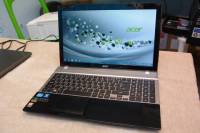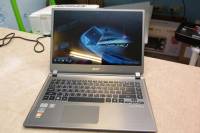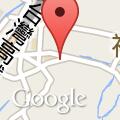search:induced pluripotent stem cells problems相關網頁資料
induced pluripotent stem cells problems的相關文章
induced pluripotent stem cells problems的相關公司資訊
induced pluripotent stem cells problems的相關商品
瀏覽:760
日期:2025-11-27
INDUCED PLURIPOTENT STEM CELLS Presented by: VIDUR BHATIA M. Sc. (F), KUK. ... Transcript 1. INDUCED PLURIPOTENT STEM CELLS Presented by: VIDUR BHATIA M. Sc. (F), KUK. 2. Contents...
Recent Stem Cell Advances: Induced Pluripotent Stem Cells for Disease Modeling and Stem Cell–Based R
瀏覽:988
日期:2025-11-29
Characterization of Pluripotent Stem Cell Clones The characteristics of each established iPS cell line can be evaluated by several methods. 35 Reverse-transcription polymerase chain reaction and immunocytochemistry can be used to evaluate specific genes o...
Human Induced Pluripotent Stem Cells from Basic Research to Potential Clinical Applications in Cance
瀏覽:779
日期:2025-11-29
The human induced pluripotent stem cells (hiPSCs) are derived from a direct reprogramming of human somatic cells to a pluripotent stage through ectopic expression of specific transcription factors. These cells have two important properties, which are the ...
瀏覽:390
日期:2025-11-27
In 2006, Shinya Yamanaka of Kyoto University in Japan was the first to disprove the previous notion that reversible cell differentiation of mammals was impossible. He reprogrammed a fully differentiated mouse cell into a pluripotent stem cell by introduci...
瀏覽:726
日期:2025-12-01
Introduction of four transcription factors, Oct3/4, Sox2, Klf4, and c-Myc, can successfully reprogram somatic cells into embryonic stem (ES)-like cells. These cells, which are referred to as induced pluripotent stem (iPS) cells, closely resemble embryonic...
Induced pluripotent stem cells: fundamentals and applications of the reprogramming process and its r
瀏覽:840
日期:2025-11-28
1. Stem Cell Rev. 2012 Mar;8(1):100-15. doi: 10.1007/s12015-011-9279-x. Induced pluripotent stem cells: fundamentals and applications of the reprogramming process and its ramifications on regenerative medicine. Walia B, Satija N, Tripathi RP, Gangenahalli...
瀏覽:723
日期:2025-12-01
They don’t require embryos, yet stem cells derived from adult human cells still face confront ethical and scientific hurdles. July, 2010- Three years ago, research teams in the United States and Japan reported that they had reprogrammed adult human cells ...
瀏覽:1267
日期:2025-12-04
Induced Pluripotent Stem Cells Are Sensitive to DNA Damage Minjie Zhang, Caiyun Yang, Huixian Liu, Yingli Sun, Beijing Institute of Genomics, Chinese Academy of Sciences, Beijing 100101, China Received 22 July 2013, Revised 28 August 2013, Accepted 3 ......


































